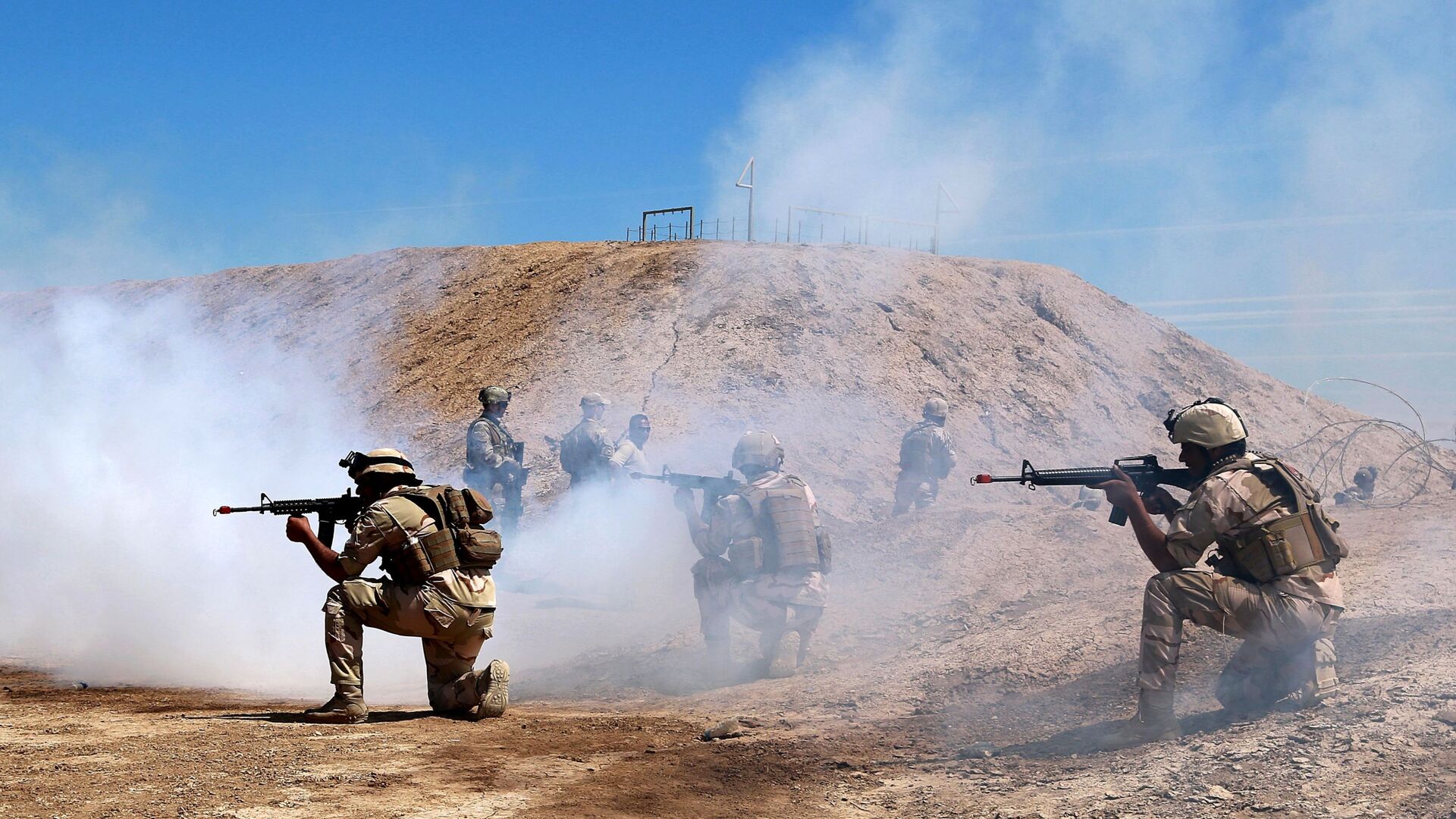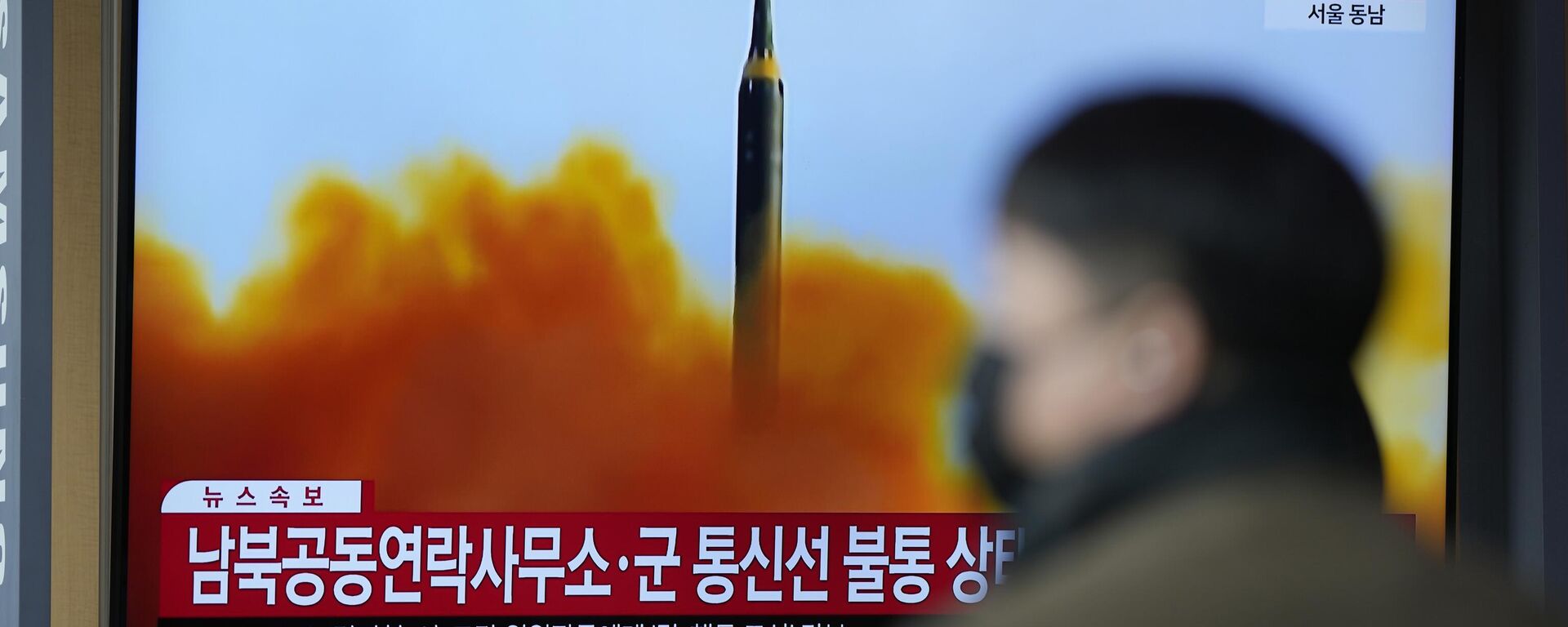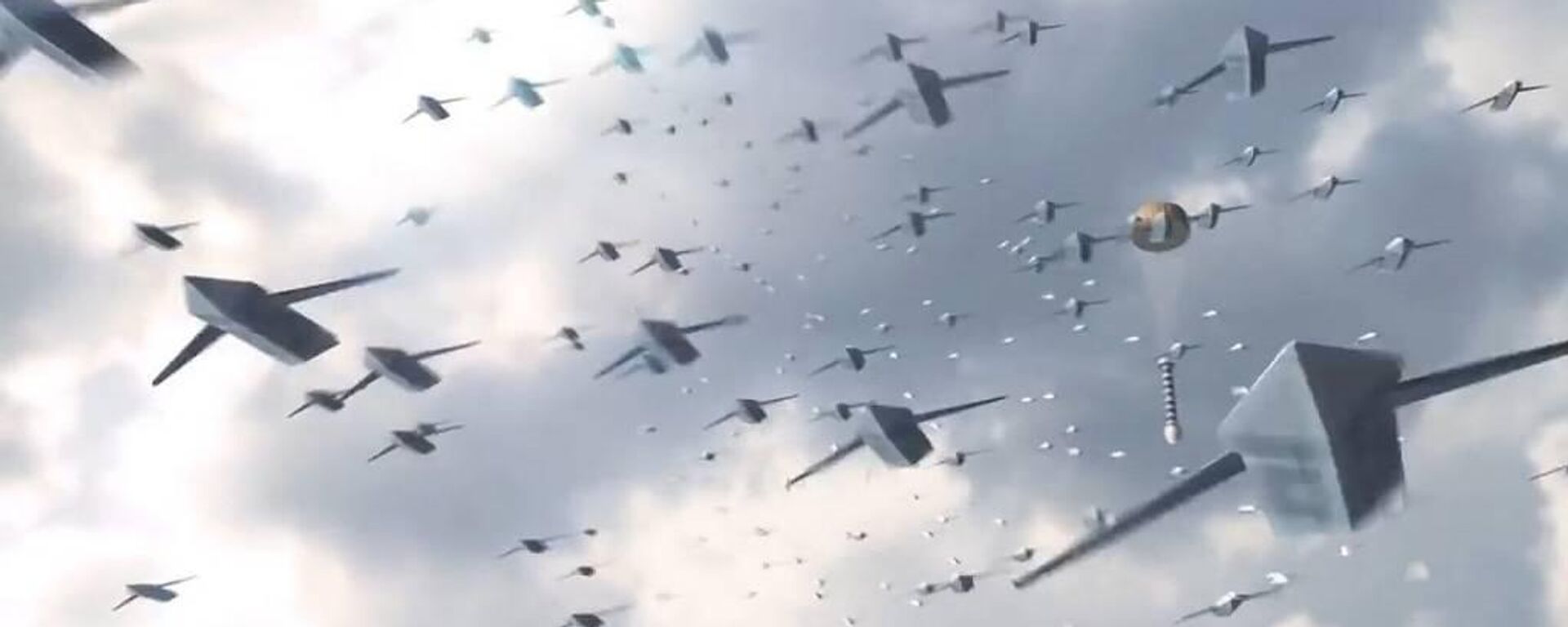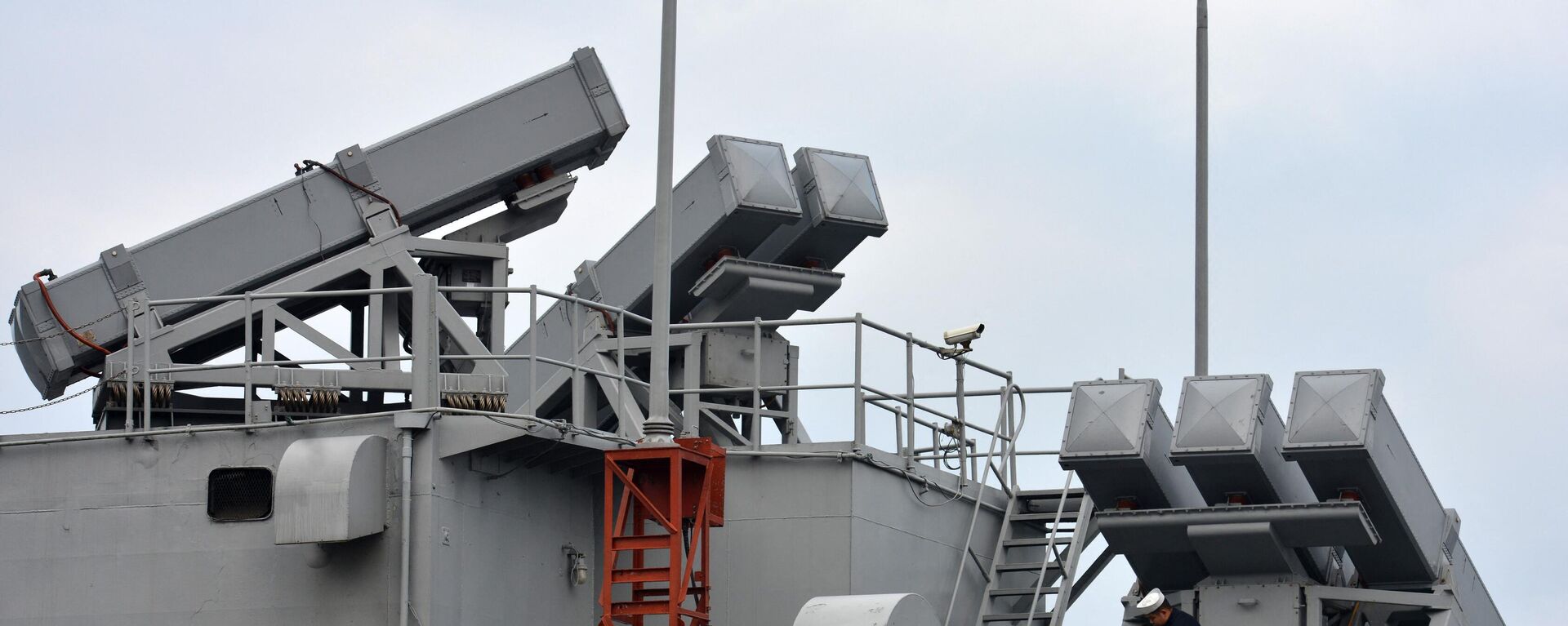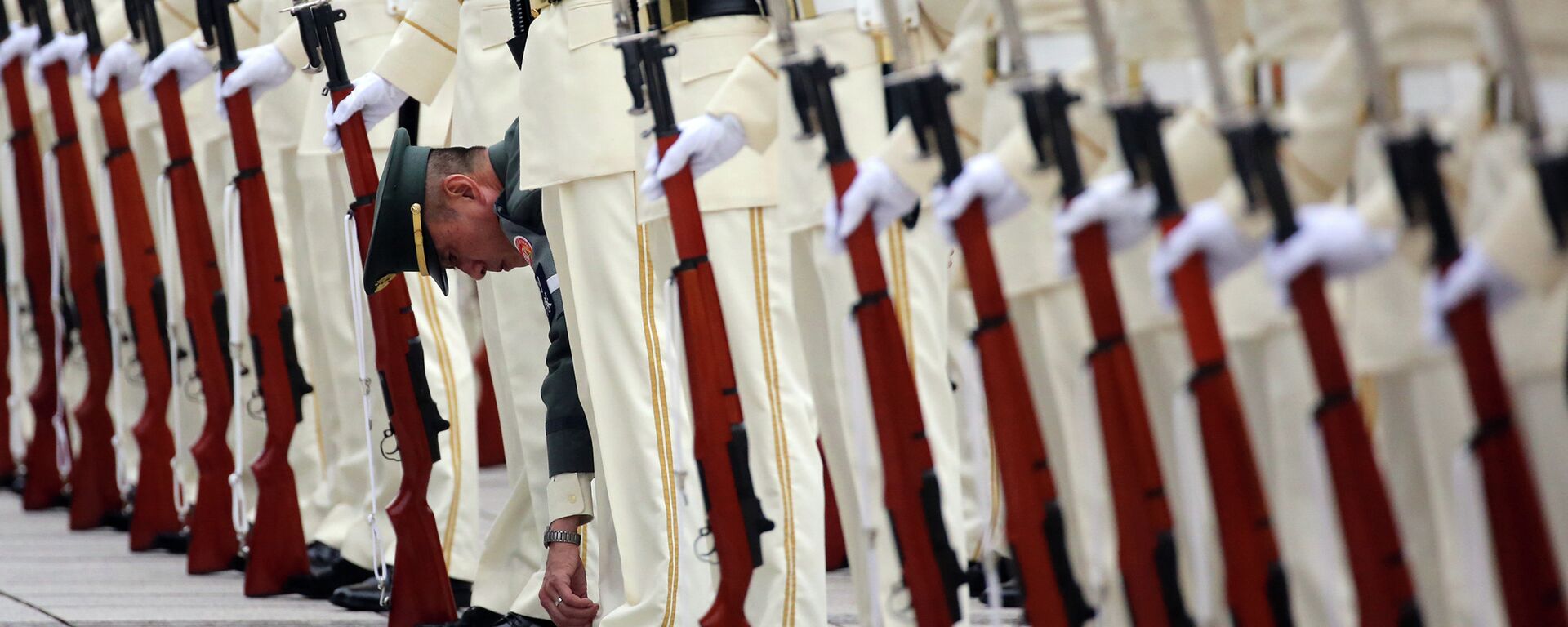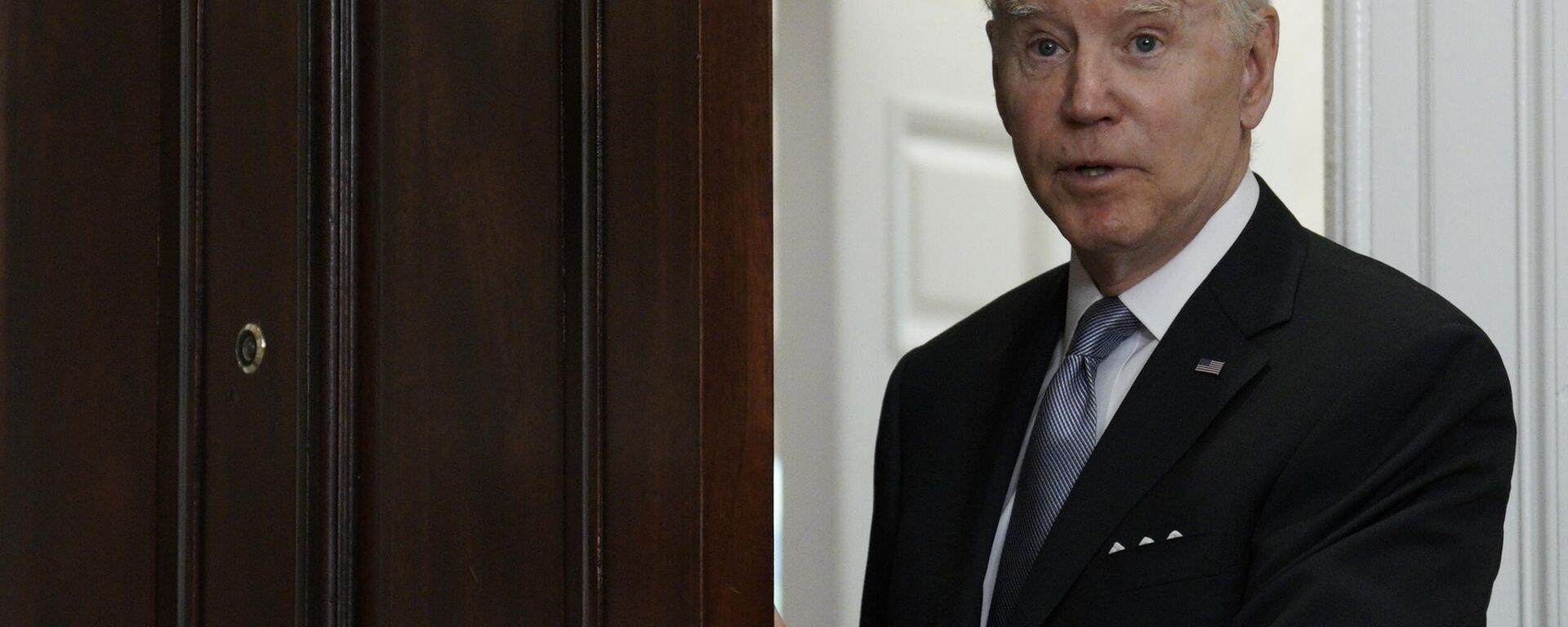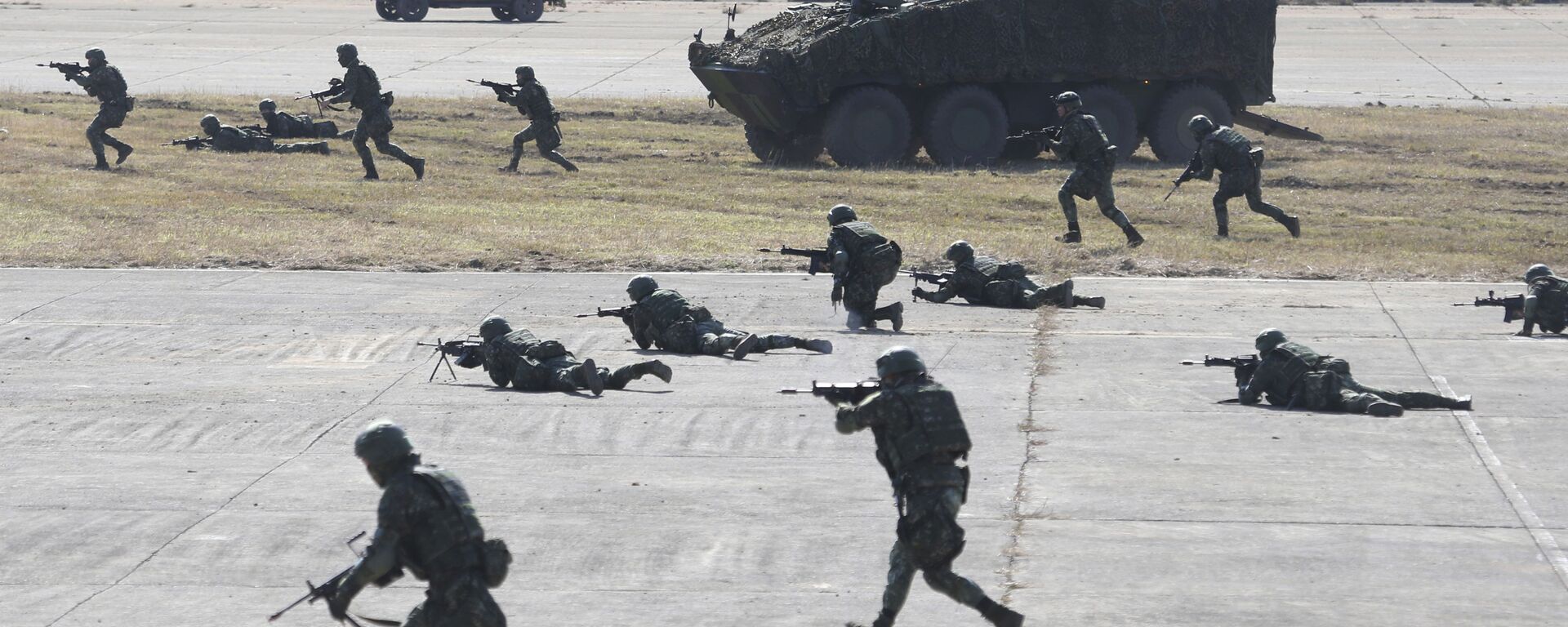https://sputnikglobe.com/20230806/shift-in-new-zealands-defense-policy-suggests-further-militarization-of-asia-pacific--1112423349.html
Shift in New Zealand's Defense Policy Suggests Further Militarization of Asia-Pacific
Shift in New Zealand's Defense Policy Suggests Further Militarization of Asia-Pacific
Sputnik International
New Zealand released a roadmap for the future of defense and national security this week, marking a major shift from its former independent foreign policy.
2023-08-06T14:43+0000
2023-08-06T14:43+0000
2023-08-06T14:43+0000
new zealand
aukus
world
southeast asia
asia-pacific region
pivot to asia
national security strategy
nato
china
pacific
https://cdn1.img.sputnikglobe.com/img/107653/47/1076534707_0:137:3155:1912_1920x0_80_0_0_a80b93870d3321f383a099ced7e4283c.jpg
The New Zealand government made the first two documents of the Defense Policy Review and it's first National Security Strategy public on August 4, with Prime Minister and Minister for National Security and Intelligence Chris Hipkins warning about "a range of complex and disruptive security challenges.""The domestic and international security environment has changed and our preparedness needs to change too – to be clear-eyed on risks and to put in place the right capabilities to be effective," Hipkins stressed.For his part, Defense Minister Andrew Little announced new investments "to modernize [New Zealand's] capabilities across land, sea and air, and are strengthening our relationships with friends and partners in the Pacific and beyond."The new doctrines mark a major shift in New Zealand's foreign policy and suggest the government's intent to join AUKUS, an Anglophone tripartite alliance between the US, the UK and Australia, according to the Quincy Institute for Responsible Statecraft, a Washington DC-based think tank.Judging from the country's Defense Policy and Strategy Statement, New Zealand is going to embrace "Pillar Two" of the AUKUS pact: "AUKUS Pillar Two may present an opportunity for New Zealand to cooperate with close security partners on emerging technologies," the government document reads.The DC scholars suggest that Little "appeared to open the door to AUKUS" as early as in March 2023, when he signaled that New Zealand would be "willing to explore" the pact's opportunities in the field of advanced technologies.Previously, Wellington made it clear that it wouldn't join the pact's "First Pillar" which involves the supply of nuclear-powered submarines to Australia, Foreign Minister Nanaia Mahuta said last week. Still, the nation's drift towards the Anglophone alliance appears to be underway.Is New Zealand Abandoning Independent Strategy?For decades, Wellington has been known for its "independent foreign policy," per the think tank. Back in 1986, New Zealand was suspended from the 1951 Australia, New Zealand, US Security (ANZUS) Treaty over its decision to declare a nuclear-free zone in the country's territorial waters.After the end of the Cold War, New Zealand capitalized on its independent foreign strategy by diversifying diplomatic and trade ties with various countries regardless of their political affiliations.In particular, New Zealand entered into a free trade agreement with China in 2008. The People's Republic has since become New Zealand’s largest trading partner, with two-way trade valued at over NZ$37 billion (US $22 billion) in 2021. It appears to be especially beneficial for the Kiwis, given that New Zealand exports to China total $NZ21.45 billion (comprising $NZ20.04 billion in goods and $NZ3.4 billion in services) which surpasses its imports from the People's Republic.Nonetheless, it appears that the era of Wellington's independent foreign policy is now "over", according to the think tank.To illustrate their point, the DC scholars refer to the new doctrines' unusually critical approach towards China, which fits into a broader strategy propagated by the US, the UK and Australia in their respective Indo-Pacific strategies."[F]or Wellington, which has largely kept on good terms with Beijing even as China’s relations with the West have deteriorated, the words and the overall tone and substance of the documents reflect a historic shift," the think tank underscores.Increasing Its Military BudgetNew Zealand is set to bolster its military spending too. While the country presently spends around 1.4% of its gross domestic product (GDP) on its defense, in early May Defense Minister Andrew Little announced new money injections in the country's military budget.He continued by explaining that the budget 2023 also invests a further $NZ328 million ($197.8 million) in upgrading New Zealand's Defense Force assets and infrastructure. The boost has been made to "ensure [Wellington] can better work with [its] partners to meet [its] commitments here, in the Pacific and abroad."The May announcements brought the total amount invested in the nation's military to $NZ4.7 billion ($2.84 billion) since 2017, or "double what the previous government spent."The think tank remarks that the increase seems especially significant given that New Zealand is a nation of just five million people.Furthermore, DC scholars have drawn attention to the fact that New Zealand's Defense Policy Review should have been released not earlier than mid-2024; however, Little "fast-tracked" it and released the documents in August 2023. The publication of the new military doctrine was preceded by New Zealand’s guest participation at NATO summits in 2022 and 2023.New Zealand is not the only US partner that has recently reverted from a largely pacifist foreign policy and increased its military spending: Japan is also boosting its military budget, closing ranks with the US and stepping up cooperation with NATO.Simultaneously, the US is beefing up its own military presence in the Asia-Indo-Pacific region and speeding up weapon supplies to Taiwan.The ongoing militarization sparks concerns about the further escalation of tensions in the region, which is fraught with serious security risks.
https://sputnikglobe.com/20230712/s-korea-offers-japan-australia-new-zealand-collective-security-after-norths-launch-1111830580.html
https://sputnikglobe.com/20230528/is-aukus-weaponizing-drone-swarms-against-china-1110752233.html
https://sputnikglobe.com/20230804/new-taiwan-arms-deal-us-dead-set-on-provoking-war-with-china-1112391222.html
https://sputnikglobe.com/20230802/north-korea-accuses-japan-of-reverting-to-militarism-1112341232.html
https://sputnikglobe.com/20230728/us-to-host-trilateral-summit-with-south-korea-and-japan-1112229782.html
https://sputnikglobe.com/20230803/is-biden-preparing-to-dump-ukraine-for-taiwan-1112361859.html
new zealand
southeast asia
china
pacific
Sputnik International
feedback@sputniknews.com
+74956456601
MIA „Rosiya Segodnya“
2023
News
en_EN
Sputnik International
feedback@sputniknews.com
+74956456601
MIA „Rosiya Segodnya“
Sputnik International
feedback@sputniknews.com
+74956456601
MIA „Rosiya Segodnya“
new zealand, new zealand defense doctrine, new zealand security doctrine, aukus, aukus first pillar, aukus second pillar, joe biden indo-pacific strategy, nz army, nz defense force, nz air force, nz intelligence, chris hipkins, defense minister andrew little, asia pacific, pivot to asia, indo-pacific, aukus nuclear submarine deal, us indopacom, japan, japanese military spending, taiwan, arming of taiwan
new zealand, new zealand defense doctrine, new zealand security doctrine, aukus, aukus first pillar, aukus second pillar, joe biden indo-pacific strategy, nz army, nz defense force, nz air force, nz intelligence, chris hipkins, defense minister andrew little, asia pacific, pivot to asia, indo-pacific, aukus nuclear submarine deal, us indopacom, japan, japanese military spending, taiwan, arming of taiwan
Shift in New Zealand's Defense Policy Suggests Further Militarization of Asia-Pacific
New Zealand released a roadmap for the future of defense and national security this week, marking a major shift from its former independent foreign policy.
The New Zealand government made the first two documents of the Defense Policy Review and it's first National Security Strategy
public on August 4, with Prime Minister and Minister for National Security and Intelligence Chris Hipkins warning about "a range of complex and disruptive security challenges."
"The domestic and international security environment has changed and our preparedness needs to change too – to be clear-eyed on risks and to put in place the right capabilities to be effective," Hipkins stressed.
For his part, Defense Minister Andrew Little announced new investments "to modernize [New Zealand's] capabilities across land, sea and air, and are strengthening our relationships with friends and partners in the Pacific and beyond."
"We take the world as it is, not how we would like it to be. It is essential to respond appropriately to the full range of national security threats to New Zealand and our interests," the minister emphasized.
The new doctrines mark a major shift in New Zealand's foreign policy and suggest the government's intent to join AUKUS, an Anglophone tripartite alliance between the US, the UK and Australia, according to the Quincy Institute for Responsible Statecraft, a Washington DC-based think tank.
Judging from the country's Defense Policy and Strategy Statement, New Zealand is going to embrace "Pillar Two" of the AUKUS pact: "AUKUS Pillar Two may present an opportunity for New Zealand to cooperate with close security partners on emerging technologies," the government document reads.
The DC scholars suggest that Little "appeared to open the door to AUKUS" as early as in March 2023, when he signaled that New Zealand would be "willing to explore" the pact's opportunities in the
field of advanced technologies.
Previously, Wellington made it clear that it wouldn't join
the pact's "First Pillar" which involves the supply of nuclear-powered submarines to Australia, Foreign Minister Nanaia Mahuta said last week. Still, the nation's drift towards the Anglophone alliance appears to be underway.
Is New Zealand Abandoning Independent Strategy?
For decades, Wellington has been known for its "independent foreign policy," per the think tank. Back in 1986, New Zealand was suspended from the 1951 Australia, New Zealand, US Security (ANZUS) Treaty over its decision to declare a nuclear-free zone in the country's territorial waters.
After the end of the Cold War, New Zealand capitalized on its independent foreign strategy by diversifying diplomatic and trade ties with various countries regardless of their political affiliations.
In particular, New Zealand entered into a free trade agreement with China in 2008. The People's Republic has since become New Zealand’s largest trading partner, with two-way trade valued at over NZ$37 billion (US $22 billion) in 2021. It appears to be especially beneficial for the Kiwis, given that New Zealand exports to China total $NZ21.45 billion (comprising $NZ20.04 billion in goods and $NZ3.4 billion in services) which surpasses its imports from the People's Republic.
China has also emerged as New Zealand’s "second largest and fastest growing tourism market"; "largest source of international students"; and a "significant source of foreign investment," as per New Zealand's government site.
Nonetheless, it appears that the era of Wellington's independent foreign policy is now "over", according to the think tank.
To illustrate their point, the DC scholars refer to the new doctrines' unusually critical approach towards China, which fits into a broader strategy propagated by the US, the UK and Australia in their respective Indo-Pacific strategies.
"China’s rise is a major driver of geopolitical change," warns New Zealand's National Security Strategy. It argued that Beijing is becoming "more assertive and more willing to challenge existing international rules and norms"- and is using "economic coercion" to achieve its goals.
"[F]or Wellington, which has largely kept on good terms with Beijing even as China’s relations with the West have deteriorated, the words and the overall tone and substance of the documents reflect a historic shift," the think tank underscores.
Increasing Its Military Budget
New Zealand is set to bolster its military spending too. While the country presently spends around 1.4% of its gross domestic product (GDP) on its defense, in early May Defense Minister Andrew Little announced new money injections in the country's military budget.
"The pay of many NZDF [New Zealand Defense Forces] personnel, including new recruits, and skilled lower ranked service people will increase between $NZ4,000 [$2413] and $NZ15,000 [$9,049] from July 1 (…) By investing over $NZ419 million [$252.7 million] to boost the defense payroll we can continue to maintain, and attract, the skills, experience and expertise our personnel provide at home and abroad, as well as addressing cost of living pressures," Little stated on May 8.
He continued by explaining that the budget 2023 also invests a further $NZ328 million ($197.8 million) in upgrading New Zealand's Defense Force assets and infrastructure. The boost has been made to "ensure [Wellington] can better work with [its] partners to meet [its] commitments here, in the Pacific and abroad."
The May announcements brought the total amount invested in the nation's military to $NZ4.7 billion ($2.84 billion) since 2017, or "double what the previous government spent."
The think tank remarks that the increase seems especially significant given that New Zealand is a nation of just five million people.
Furthermore, DC scholars have drawn attention to the fact that New Zealand's Defense Policy Review should have been released not earlier than mid-2024; however, Little "fast-tracked" it and released the documents in August 2023. The publication of the new military doctrine was preceded by New Zealand’s guest participation at NATO summits in 2022 and 2023.
The new military doctrine outlined by Little places emphasis on the necessity to make New Zealand’s military more "combat-capable" and to expand the nation's military activities in the Pacific region. In addition to spending more on the nation's military personnel, Wellington has recently taken possession of a fleet of Boeing P-8A Poseidon aircraft that were ordered in 2018, at a total cost of over $NZ2 billion ($1.21 billion).
New Zealand is not the only US partner that has recently reverted from a largely pacifist foreign policy and increased its military spending: Japan is also
boosting its military budget, closing ranks with the US and stepping up cooperation with NATO.
Simultaneously, the US is beefing up its own
military presence in the Asia-Indo-Pacific region and speeding up
weapon supplies to Taiwan.
The ongoing militarization sparks concerns about the further escalation of tensions in the region, which is fraught with serious security risks.
